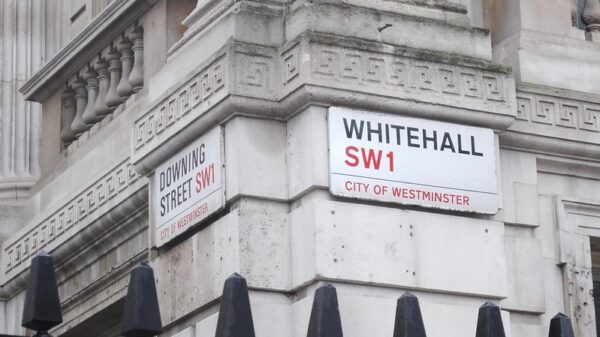Staff Writer, Douglas Gibb, sits down with Luke Akehurst as they talk: Labour policies, nuclear deterrents, Israel and more…
Background
Luke Akehurst, known to some as “Luke the Nuke” for his support of Trident, is director of We Believe in Israel, secretary of Labour First and a member of Labour’s National Executive Committee (NEC), a body that oversees policy, disciplinary cases and candidate selections. He has previously served as a councillor in Hackney. His support for liberal interventionism has won him much animosity among the anti-war movement. I quizzed him on issues from Labour at home to the Middle East and nuclear weapons abroad.
Iraq. In my name. Proud to have supported liberation of a country from fascism. I thought that was what being on the left was about.
— Luke Akehurst (@lukeakehurst) February 15, 2013
Labour’s policies
Given the increasing noise over Labour’s apparent vapidity, I began by asking Luke what Labour’s top five policy commitments are, something Blair had done in the run-up to the 1997 general election.

“If you had asked me before I went on holiday,” he concedes, “I’d be able to recite our five missions. There’s the one about achieving the highest growth rate in the G7, another about safer streets, and a third on funding more nurses. That’s three.” Evidently aware that these are less concrete and numbers-based than Blair’s were, he adds, “When we get to Conference, we’ll unveil the stuff that was decided at the National Policy Forum, which includes a lot of policy detail. There’ll be more to come nearer the election, too.” Even NEC members struggle with Labour’s core message.
When I asked him about equalising capital gains tax with income tax (the Intergenerational Foundation says that salaries are typically taxed at 2-4 times the rate capital gains are), something which could raise up to £14 billion, Luke refers back to the 1992 election. “I was knocking on doors then – often of benefit claimants, so they were never going to be paying the tax increases proposed by John Smith – people had seen the headline ‘Labour will tax you more’ and thought it would apply to them.” He elaborated, “Another point is the electorate don’t trust Labour on spending, particularly post-2008. We need to reassure people that our default isn’t tax and spend.”
Getting business on side
The topic turns to business and donors, so I ask about the Rose Network (RN): “What do you say to people who infer from the RN that Labour are excessively interested in listening to what people who are already wealthy say, instead of those who want to be but aren’t?” He clears up a point of confusion, saying “RN isn’t quite the same as engagement with business. Some of the people in RN will be involved in business, but others aren’t.” He explains that RN is only one of several sources of income for Labour, so the party isn’t totally reliant on high value donors, when lots of funding still comes from member and union fees. He continues, “There’s a separate strand about Starmer and Reeves going out and talking to business, but that doesn’t involve those businesspeople giving any money. We’ve got to hear what they need, and they’ve got to hear what our ideas are from shadow ministers, not the Tories.”
I then referred to the fact that Starmer has been receiving a lot of ‘freebies‘, and Labour more broadly has taken £10,000 in gifts from Google, when it has recently dropped plans to increase the digital tax, which Google would have had to pay. “It sounds like these are quite large sums, but it’s not the sort of money that would change someone’s policies. I would start to worry if we were seeing people being offered holidays and so on, but this is normal business hospitality and they don’t necessarily get what they want,” he replies.
Yemen
Given Luke’s out-spokeness on foreign policy, I steer the conversation towards that. I begin by expressing my surprise for his support of Saudi Arabia in Yemen, in light of their human rights abuses, not least their reported teaching of antisemitism in textbooks. He acknowledges this: “I expressed support for the Saudi intervention before their inability to target properly, the constant hitting of civilians, became apparent. The Saudi regime is horrible – it’s an autocratic, bigoted, human rights-abusing regime – and Iran is probably worse in as much as in Saudi Arabia there are some prospects of reform. The Saudis have been on the receiving end of something akin to the rocket fire Israel receives from Gaza. What we should be doing is conditioning arms, saying ‘if we’re going to give you this, we have to be involved in targeting.'”
I suggest that maybe a better approach would be “there are legitimate grievances, but Saudi Arabia isn’t a credible actor in warfare, so other authorities should handle the matter on their behalf.” While agreeing in principle, he points out that “the international community is overstretched. Particularly since Afghanistan, there has been a reluctance from major power, not least the US, to intervene significantly. Ideally, we would put in international peacekeeping forces, but the will isn’t there. The UN doesn’t function because of the veto system and the players that wouldn’t veto a US or British plan are tired.”
Trident
Recounting an experience with a defender of the Provisional IRA, I tell Luke how I had to explain that “you can’t kill civilians, basic empathy should tell you that civilians aren’t legitimate targets,” noting that this applies to strategic nuclear weapons as well as terrorism.
“It’s only morally unacceptable if you think it’s possible that anyone wouldn’t be deterred by that,” he countered. I agree that, on the basis of rational choices, leaders would, indeed, be deterred by Trident, however the reality is that “the difference between humanity’s survival and exctinction has, on occasions, been the hunch of a single officer,” which isn’t about rational choices. “That’s a strong argument for a nuclear-free world, but how do you get there?” He continues, “Multilateral disarmament is Labour’s policy, where everyone disarms at once. I don’t think it would be good to live in a world where Russia or China had nukes but Britain didn’t.”
I refer to three top generals – Bramall, Ramsbotham and Beach – who said in 2009 that Trident was a £20 billion waste of money. He explains that his view is that “£20 billion isn’t a lot for a strategic nuclear deterrent. Often these sorts of comments from people in other parts of the military that need other stuff, but the equipment you would have to buy to achieve a similar level of deterrence would be much more expensive than Trident.”
Israel and Palestine
“When I was starting to get political at school, I didn’t understand Zionism at all well,” I confess, “but now I can see why there’s not just a right but also a necessity for a Jewish homeland. Herzl started off as an assimilationist but his experiences of antisemitism in Austria and France led him to conclude that antisemitism was too bad, and the Holocuast was conclusive proof of that.” Luke concurs, adding that “Before WW2, there were many more trends within Jewish communities in Europe, such as Bundism. But the Shoah demonstrated that the Zionists had been right to be extremely sceptical of the chances of Jewish survival in Europe.”
He elaborates on this, saying “People tend to accept Zionism for reasons about protection from persecution, but this means the positives are often overlooked. Israel shouldn’t be thought of as solely a lifeboat state. You have things like the cultural rebirth and resurrection of Hebrew, and that’s a good thing in itself.” I mention Izzy Posen and what he had said about his experiences visiting Israel, particularly the fact that Jewish culture is reflected in its national symbols. “Yes, an example would be national holidays. A Jewish Brit might have to ask their boss for a day off, but in Israel the holidays are Rosh Hashanah, Yom Kippur and Pesach,” he adds.
“How would you define Zionism?” I ask, aware of the various definitions and disagreements within the movement. “Some forms of Zionism are at loggerheads, so no one should be expected to agree with them all. For me, it’s a belief in the right to national self-determination for the Jewish people in Israel, their homeland.” He qualifies this, “There’s a revisionist tradition that Netanyahu comes from, founded by Jabotsinky, which is very militant and uncompromising towards Arabs, but that’s not my sort of Zionism. If I was living in Israel, I would be supporting politicians with similar beliefs to those I support here, so centre-left ones.” On the topic of Jabotsinky, I mention reading his Iron Wall essay and that “my own conception of Jewish self-determination, as a non-Jew, is radically different to Jabotinsky’s own vision.” Agreeing, he replies “Yes, you can see that radical difference on the streets of Israel today, with the deabte over constitutional issues. I’ve visited the Knesset, and Smotrich happened to be speaking. It was obvious to me that he is a far-right demagogue and Ben-Gvir is a neo-fascist thug. I don’t think Netanyahu is like that, he’s a populist conservative, so ‘fascist’ should be reserved for those that actually are.”
As the conversation meanders, Luke mentions the disengagement from Gaza and how it led to Hamas taking over. This prompts me to share an experience I had of talking to someone online who defended an attack on Jewish worshippers at a synagogue in East Jerusalem on Holocaust Memorial Day: “I had assumed that defending something so blatantly antisemitic would be unthinkable. It worries me how common these views might be.” I explain that, in the hopes of finding some kernel of sanity, I posed a hypothetical, would it be moral to kill an eight year old Jewish child living in Tel Aviv? This person said it would be. Luke guesses correctly that “if he’s that hard-line, he probably doesn’t believe that Israel is there lawfully and that it’s all settler-colonialist.” Confirming his suspicions, I add, “Yes, he wanted to deport all Israeli Jews back to Poland or wherever their N-th great grandparents came from.” “What happens to half of Israeli Jews that are Mizrahi?” Luke asks, “Does he want to send them to Iraq, Algeria, etc.? There’s no way that is going to happen.”
Iraq
I begin the final section by asking about the now-infamous tweet regarding the Iraq War (see background). “Is it fair to say you sometimes take on bold positions to rile up the anti-war Left?”
“In 2003, I was a councillor and was clear about what I was being told by the Blair government. Ba’athist Iraq had a proven track record of the development and use of WMDs from before the mid-90s, e.g. Halabja. In the aftermath of 9/11, the US and UK became impatient about the risk of someone like Saddam using a dirty bomb, for example. Now that I understand the lack of preparedness, particularly from the Americans, I would say that’s the thing that was unforgivable, not the war itself,” he explains, weary of how the mistakes in Iraq have led to a sharp decline in support for a liberal interventionist foreign policy. He continues, “I think I should probably be held accountable for views I’ve had, so just saying ‘with the benefit of hindsight…’ doesn’t seem politically honest for me.”
“On that point about honesty,” I ask, “do you think Blair was honest with the public, in light of the plagiarism and the misrepresentation of Blix’s testimony at the UN?” “I just don’t remember those bits being as important as they are seen as now. I think he honestly set out what he believed,” he argues. I gave him the example of Hans Blix’s testimony to the UN Security Council on 27 January, 2003: “The most important point to make is that access has been provided to all sites we have wanted to inspect. And with one exception, it has been without problems… The environment has been workable.” However, on 7 February, Blair said, “What Hans Blix has said is that the Iraqis are not cooperating properly.” Luke responds, “Would Blair definitely have seen that? Another thing is that I’m not sure Blair thought Blix was a reliable source. He was operating as a UN inspector, and there are good reasons to be sceptical of the UN’s role. My sense is probably that the government thought he was a partisan player and so Blair didn’t believe what he was saying.”
In conclusion, despite the impression many have of him as a neo-conservative who likes the NHS, it’s clear to me that he’s more aware of the mistakes of Western foreign policy than people realise. Likewise, his reputation as a defender of Blair and now Starmer can be misleading, as he is evidently aware of the criticisms levied against the current leadership, particularly on the lack of policy substance.


















